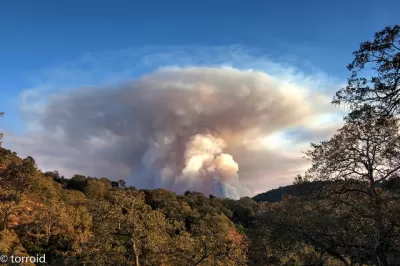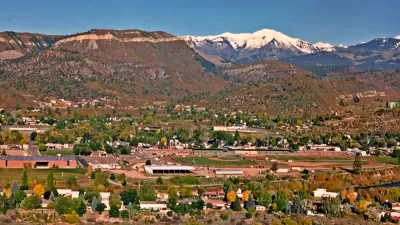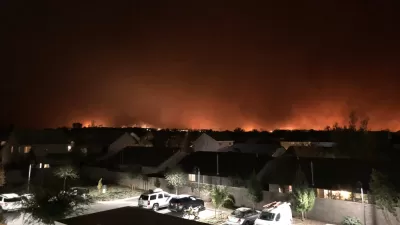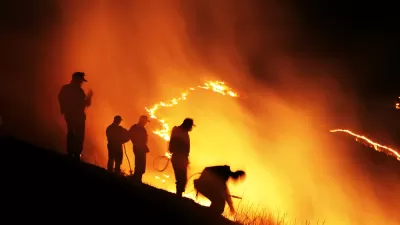To fight increasingly devastating wildfires, government officials and landowners must develop new strategies that proactively address the biggest risk factors.

After another devastating fire season, three new scientific papers outline a plan for "how land managers and policymakers can move from passive to proactive wildfire and forest management," writes Kylie Mohr.
As climate change intensifies wildfires across the West, officials can reduce some of the impacts through a variety of strategies.
These include thinning dense forests that haven’t recently burned, removing some flammable shrubs and bushes, allowing wildfires to burn when conditions are appropriate, and ramping up Indigenous fire stewardship practices, including prescribed burns. If forests are managed well, they’ll still burn — but the fires won’t be so devastating.
The papers, which present facts and misconceptions about a laundry list of management practices, could help landowners and government agencies develop more effective fire management plans. The challenges, writes Mohr, are many: "getting vast numbers of private landowners to work together and understand what they need to do, dealing with federal and state regulatory barriers, permitting red tape, an insufficient federal workforce, a lack of funding, the risks stemming from liability and insurance policies, and a deeply ingrained fire suppression mentality."
Wildfires have grown more severe as climate change worsens 'fire weather' conditions and sprawl puts more communities at risk. Experts suggest that smarter urban growth policies such as infill development and formalized guidance for development in fire-prone areas can mitigate the risk and reduce the damage caused by wildfire.
FULL STORY: Why fire experts are hopeful

Planetizen Federal Action Tracker
A weekly monitor of how Trump’s orders and actions are impacting planners and planning in America.

Restaurant Patios Were a Pandemic Win — Why Were They so Hard to Keep?
Social distancing requirements and changes in travel patterns prompted cities to pilot new uses for street and sidewalk space. Then it got complicated.

Map: Where Senate Republicans Want to Sell Your Public Lands
For public land advocates, the Senate Republicans’ proposal to sell millions of acres of public land in the West is “the biggest fight of their careers.”

Maui's Vacation Rental Debate Turns Ugly
Verbal attacks, misinformation campaigns and fistfights plague a high-stakes debate to convert thousands of vacation rentals into long-term housing.

San Francisco Suspends Traffic Calming Amidst Record Deaths
Citing “a challenging fiscal landscape,” the city will cease the program on the heels of 42 traffic deaths, including 24 pedestrians.

California Homeless Arrests, Citations Spike After Ruling
An investigation reveals that anti-homeless actions increased up to 500% after Grants Pass v. Johnson — even in cities claiming no policy change.
Urban Design for Planners 1: Software Tools
This six-course series explores essential urban design concepts using open source software and equips planners with the tools they need to participate fully in the urban design process.
Planning for Universal Design
Learn the tools for implementing Universal Design in planning regulations.
Heyer Gruel & Associates PA
JM Goldson LLC
Custer County Colorado
City of Camden Redevelopment Agency
City of Astoria
Transportation Research & Education Center (TREC) at Portland State University
Camden Redevelopment Agency
City of Claremont
Municipality of Princeton (NJ)





























